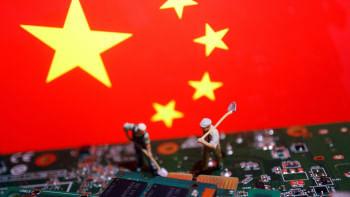
Last update on: Tue Apr 15, 2025 05:33 PM

I did not vote for Donald Trump but accepted the election result with the hope that our president will succeed. Like most Americans, I do not take an interest in national politics daily. To most of us, a candidate, once elected, represents all voters and, hopefully, acts in the best interest of the nation. Presidents have also historically served as role models for most Americans. George Washington, Lincoln, Roosevelt, Kennedy, and Obama have been inspirational figures for me.
President Trump has now been president for almost 100 days, and I must admit that no other president in recent memory has dominated the headlines and initiated as many changes in such a brief time. At the time of independence, the American president’s job description reflected that of a monarch, albeit with the checks and balances of the judiciary and the Congress. With a compliant judiciary and a Republican majority Congress, President Trump is working as an unchallenged monarch.
However, I am yet to see signs of “winning” or becoming rich anytime soon, as he had repeatedly promised during the election. On a micro level, I am still paying almost $7 for a dozen eggs, and the gas prices have not changed much. My friend just bought a used car financed at a 14 percent interest rate! This year’s college graduates have the fewest job offers in recent memory.
Under Trump’s presidency, the influx of illegal workers to the United States, particularly through the southern border, has drastically gone down. However, street crimes in major cities have not. Soon, it will be interesting to see how farmlands from the south to the mid-west are going to be prepared for corn, soybean, and wheat planting, and later harvested without migrant labour. Also, why aren’t we focusing on the big businesses which hire undocumented immigrants in the first place? There is already a strong law against the hiring of illegals. Why doesn’t the Trump justice department enforce the existing laws?
Thousands of federal workers are being laid off without following any process, and billions are being slashed in the name of fraud and inefficiency. Concurrently, the highest income earners and largest defence contractors are getting away without paying any taxes. The process of awarding defence contracts and how defence dollars are spent need to be scrutinised as well.
The issue which has totally confused and bewildered both businesses and consumers is the choice of tariffs as the principal policy instrument to strengthen the American economy. One can make a case for tariffs or quotas for short-term gain, but it has always proven to be ineffective in solving fundamental economic inequities or the competitive position of any country in the long run. Unilateral tariffs always bring about retaliation. Historians blame the tariff war among nations as one of the principal causes of the 1930s depression.
Tariffs and the threat of tariffs have created a sense of uncertainty for businesses. All the industrial indexes, like the Dow Jones and Nasdaq, were down, and consumer confidence had plummeted to a new low. Most Americans, who are at least indirectly connected to the stock market via their retirement plans, have seen their net worth go down. Businesses have gone into a holding pattern to new investment, expansion, and hiring.
America has been losing its competitive advantage for a while now, and China is not the culprit. It is the American multinational companies which took the jobs to China and made the US dependent on Taiwan for the chips needed for semiconductors. Even the common drugs needed for routine medical care come from China and India. In the multipolar world of 2025, the US economy is far more vulnerable than at any other time in contemporary history.
Most US voters do not know and have seldom questioned why we have a military presence in 100+ countries and why China has a trade surplus with most of them. China has more leverage over most of those countries than the United States.
In the international political arena, the United States is usually considered the “good guys.” Sadly, after the disasters in Vietnam, Libya, Iraq, and Afghanistan, the US is perceived as an unreliable friend who has no problem walking away from commitments. Recent pronouncements from the White House have undermined NATO. Concurrently, the US sided with Russia and North Korea in a recent UN General Assembly vote.
Stiff tariffs have been imposed on products from Canada and Mexico. Canada and Mexico are not competitors but trading partners who make complementary and intermediate products for many American companies. Canada, US, and Mexico together can be a competitive unit against the challenges from China or the European Union.
Trump and his vice president’s public pronouncements and behaviour with friends and foes alike have brought back the spectre of the “Ugly American” stereotype, depicting Americans as loud, arrogant, self-absorbed, thoughtless, demeaning, and ethnocentric. Most Americans, and certainly the younger generation, no longer fit the stereotype, but President Trump certainly does. No, Mr President, we are not winning!
Faisal M. Rahman is professor and founding dean of the Graham School of Management, Saint Xavier University, Chicago. He is also the CEO/president of the APAC group of healthcare companies. He can be reached at rahman@sxu.edu or fmr0007@gmail.com.
Views expressed in this article are the author’s own.











